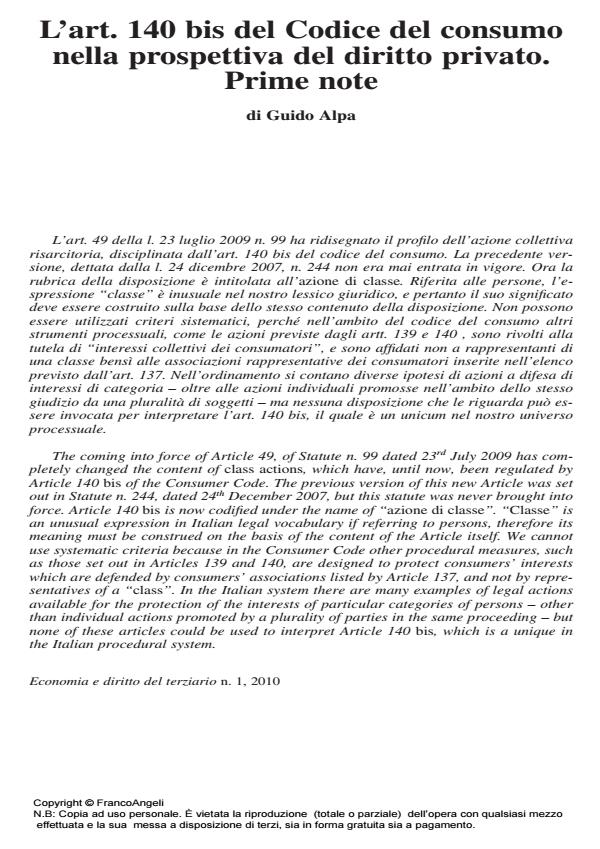L’art. 140 bis del Codice del consumo nella prospettiva del diritto privato. Prime note
Journal title ECONOMIA E DIRITTO DEL TERZIARIO
Author/s Guido Alpa
Publishing Year 2010 Issue 2010/1
Language Italian Pages 13 P. 7-19 File size 848 KB
DOI 10.3280/ED2010-001001
DOI is like a bar code for intellectual property: to have more infomation
click here
Below, you can see the article first page
If you want to buy this article in PDF format, you can do it, following the instructions to buy download credits

FrancoAngeli is member of Publishers International Linking Association, Inc (PILA), a not-for-profit association which run the CrossRef service enabling links to and from online scholarly content.
The coming into force of Article 49, of Statute n. 99 dated 23rd July 2009 has completely changed the content of class actions, which have, until now, been regulated by Article 140 bis of the Consumer Code. The previous version of this new Article was set out in Statute n. 244, dated 24th December 2007, but this statute was never brought into force. Article 140 bis is now codified under the name of "azione di classe". "Classe" is an unusual expression in Italian legal vocabulary if referring to persons, therefore its meaning must be construed on the basis of the content of the Article itself. We cannot use systematic criteria because in the Consumer Code other procedural measures, such as those set out in Articles 139 and 140, are designed to protect consumers’ interests which are defended by consumers’ associations listed by Article 137, and not by representatives of a "class". In the Italian system there are many examples of legal actions available for the protection of the interests of particular categories of persons - other than individual actions promoted by a plurality of parties in the same proceeding - but none of these articles could be used to interpret Article 140 bis, which is a unique in the Italian procedural system
Guido Alpa, L’art. 140 bis del Codice del consumo nella prospettiva del diritto privato. Prime note in "ECONOMIA E DIRITTO DEL TERZIARIO " 1/2010, pp 7-19, DOI: 10.3280/ED2010-001001